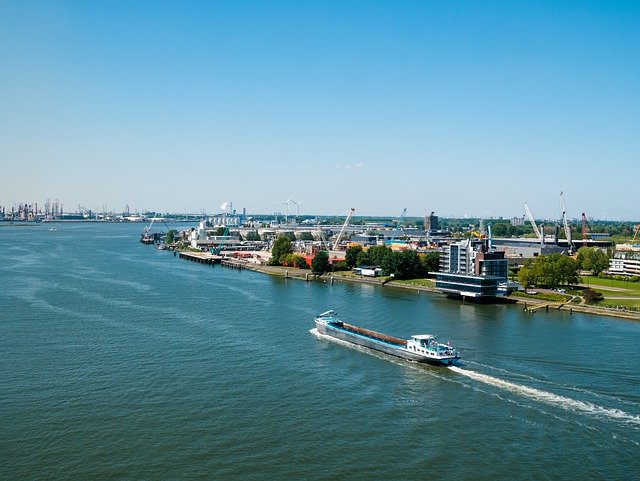The Netherlands – The port of Rotterdam is poised to lead the charge, with a remarkable shift expected by 2035, surpassing the national average in companies seeking radical reductions in their ecological footprint.
This revelation stems from the latest edition of the Port Innovation Barometer, a comprehensive study evaluating the innovation climate within the port, conducted by the Amsterdam Center for Business Innovation in collaboration with SmartPort, Port of Rotterdam, Deltalinqs, and the municipality of Rotterdam.
2035 goal
From 2035 onward, the port of Rotterdam aims to be at the forefront of climate-neutral operations, reflecting the ambition of companies within the port to significantly diminish their environmental impact. Anticipated to exceed the national average, this commitment underlines a pivotal moment in the port’s history, emphasizing a collective dedication to sustainable practices.
The study, with over 250 participants representing a quarter of the port business community, provides a detailed analysis of the current innovation climate compared to previous editions in 2016 and 2018. Despite the current lag behind the national average in terms of climate neutrality, the port companies project an 86 percent reduction in their ecological footprint by 2050, surpassing the Dutch average of 80 percent.
Investments in sustainability
Nearly half of the surveyed companies have made substantial investments in sustainability over the last five years, with three-quarters expressing their intention to continue such efforts in the next five years. Motivated not only by stringent regulations but also by intrinsic motivation, these companies prioritize both social and business objectives, exceeding the national percentage.
In tandem with sustainability, digitalization emerges as a crucial driver of innovation. Three-quarters of companies anticipate a significant impact from increased digitalization on their future activities. The port’s level of digital transformation aligns with the national average, with a strong belief that digitalization will shape the future landscape of port activities.
Despite the commendable strides, companies identify current legislation, tight labor markets, and a lack of visionary and supportive government policies as substantial barriers to innovation. The acknowledgment of these challenges signals the need for collaborative efforts and supportive policies to facilitate the envisioned innovations.





